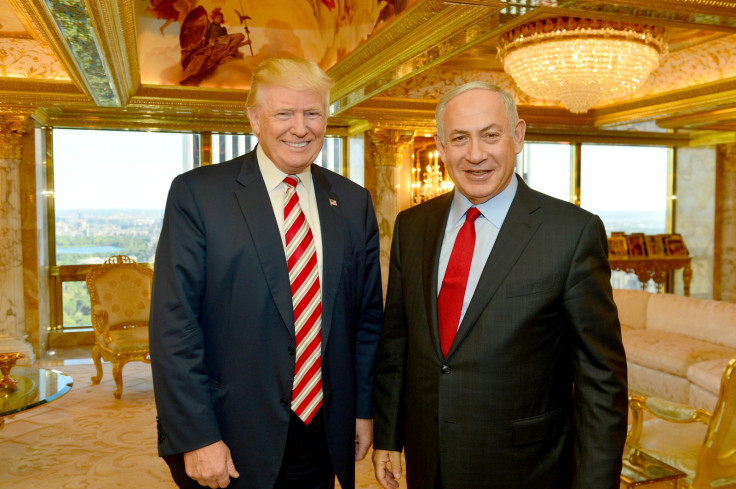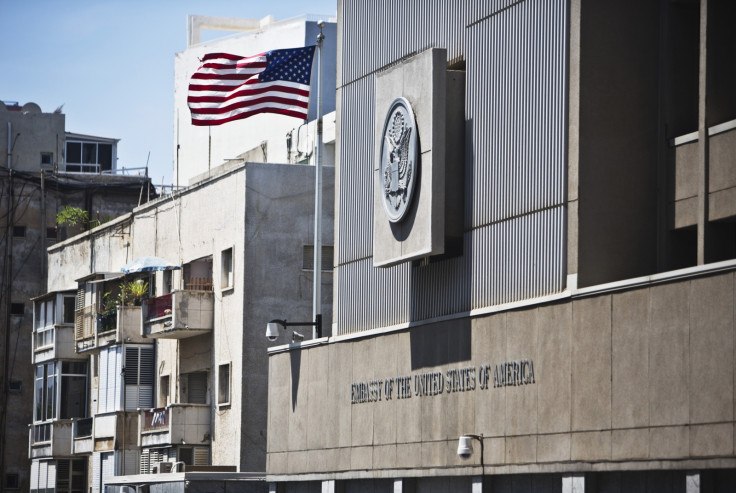US begins talks on embassy move to Jerusalem as Trump pledges commitment to Israel's security
Washington officials said talks of an immediate embassy move were 'inflated'.
The White House announced it was beginning to discuss moving the US embassy in Israel from Tel Aviv to Jerusalem, but the timeline remains vague.
"We are at the very beginning stages of even discussing this subject" White House press secretary Sean Spicer told reporters on Sunday (22 January).
The statement, along with information from another anonymous source, led Israeli Channel 2 to report that President Donald Trump would confirm the plans for the move during his first week in office. The same news channel later reported that Washington officials "cooled Israeli enthusiasm", saying that talks of an immediate embassy move were "inflated".
Trump had a phone conversation on Sunday with Israeli Prime Minister Benjamin Netanyahu, but the subject of the embassy was not mentioned in the call, according to government statements issued afterwards.
Instead, the two leaders discussed Iran, Syria and the conflict between Israel and Palestine. During the call, Trump "affirmed his unprecedented commitment to Israel's security" and invited Netanyahu to an early February meeting at the White House.
"The president emphasised that peace between Israel and the Palestinians can only be negotiated directly between the two parties, and that the United States will work closely with Israel to make progress towards that goal. The president invited Prime Minister Netanyahu to an early February meeting at the White House," the statement said, as quoted by CNN.

A change in location for the US embassy in Israel would effectively recognise Jerusalem as the capital of the State of Israel, whereas the UN-backed two-state solution to the conflict considers the city as a shared capital of the two states. Foreign diplomatic missions traditionally locate their embassies in Israel in Tel Aviv, with consular offices in Jerusalem.
In a meeting with Netanyahu in September, Trump said he "recognised Jerusalem as the undivided capital of the State of Israel". The president's choice for ambassador to Israel, David Friedman, also supports moving the embassy and Republican senators have proposed a bill in January which aims to do just that.
Senior Palestinian officials have warned they would no longer recognise the state of Israel should the US embassy move to Jerusalem, marking the end of US-led efforts to negotiate a two-state solution as enshrined in the UN resolution 181.

According to the internationally-backed two-state solution, Jerusalem would become the shared capital of the state of Israel and of a Palestinian state which would comprise East Jerusalem, the West Bank and the Gaza Strip. East Jerusalem is currently under Israeli occupation, as a recent UN resolution reiterated, demanding a halt to "all Israeli settlement activities".
Yet, just three days after Trump's inauguration as president, Israel approved 566 new settlement homes, which are considered illegal under international law. The Deputy Mayor of Jerusalem, Meir Turgeman, told AFP that Trump's inauguration means that Israel can go ahead with settlement plans: "The rules of the game have changed with Donald Trump's arrival as president ... Now we can finally build."
© Copyright IBTimes 2025. All rights reserved.






















